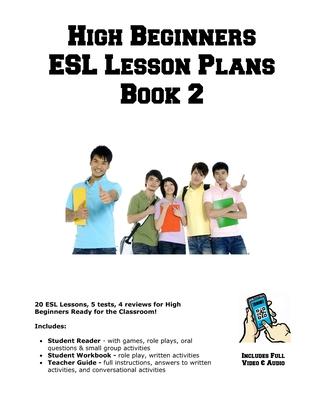- Oral questions
- role-plays
- reading a town map
- finding a friend using a pseudo name
- crossword puzzles
- making sentences
- word Bingo
- writing descriptions of people
- understanding simple jokes
- small groups asking and answering questions then checking the answers provided.
- expressing unexpected results using even though, although and but
- would, could should tag questions
- word order
- conditional sentences
- using "get" plus an adjective
- word order for adjectives
Conversational Activities
Themes include:
- Canadian heroes
- early flight in Greece, France & USA
- famous singers
- travel to Australia, India, & Niagara Falls
- skiing at Whistler, Canada
Comprehensive Multimedia Approach
Embedded links and QR code to video and audio files enhances lessons with an auditory and visual learning experience - includes multi-person conversations. Student Reader - enriches reading comprehension and vocabulary Student Workbook - workbook provides practical and engaging activities and exercises based on the lesson material. Reinforces learning, allowing students to practice and apply what they've learned from the reader. Teacher's Guide - has additional exercises, oral questions, answers to all exercises in the workbook, and provides clear instructions and structured guidance for teachers with intuitive and efficient lesson planning
Includes:
- 20 lessons
- 5 tests
- 4 review lessons
- Glossary
- Conversational Approach
- Reading, Writing and Speaking Activities
A conversational approach to English as a Second Language (ESL) is an instructional method that focuses on developing the ability to communicate effectively in English through conversation and dialogue. Instead of solely focusing on grammar rules and vocabulary memorization, we emphasizes real-life communication skills and encourages students to practice speaking, listening, and interacting in English in a natural and conversational way.
Meaningful Conversations in Authentic Situations
Students engage through activities such as role-plays, discussions, debates, and group projects. Our emphasis is on learning how to express oneself effectively, rather than simply memorizing and regurgitating phrases or sentences.
Focus on Conversation
By focusing on conversation, this approach helps students develop not only their speaking and listening skills but also their vocabulary, grammar, and pronunciation. Students learn how to use English in a meaningful and contextually appropriate way, which helps them become more effective communicators in both social and professional settings.
